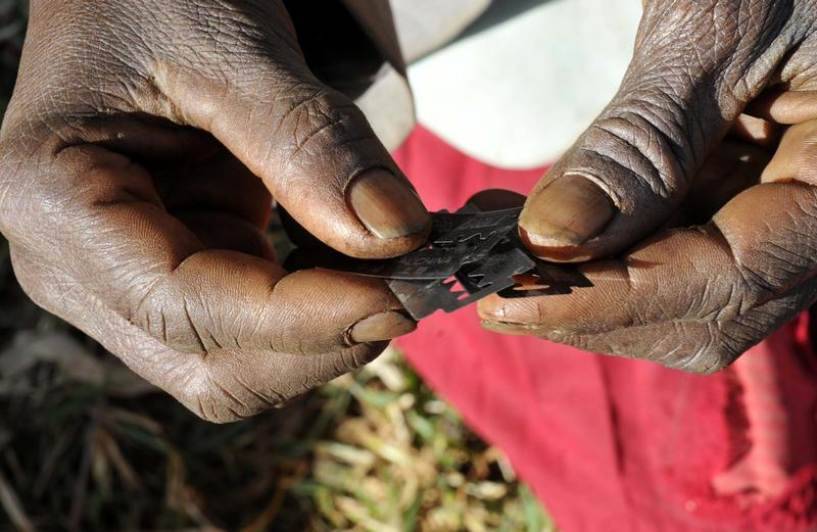“It prevents sexual promiscuity,” the first woman said. The second said: “It is a rite of passage; it prepares our girls for marriage. Yet another, the one that intrigued me the most said: “It needs to be cut out because it is a mannish organ”.
The above were some of the reasons advanced for the practice of Female Genital Mutilation (FGM) when I visited a community in Borno State in 2005 to interview a number of opinion leaders on the practice of FGM.
- Nigeria, Belgium to sign Bilateral Educational Agreement
- Stop running to Buhari over insecurity, Senate tells govs
Although this interview was conducted over 15 years ago, FGM is still an issue globally as well as in a number of communities in Nigeria. According to a 2013 UNICEF report, about 20 million girls and women in Nigeria aged 15-49 are estimated to have undergone FGM. This represents 10 per cent of the global total who have been cut. It further reveals that worldwide, about three million girls are at the risk of undergoing FGM every year, the majority of who are cut before they turn 15.
Although a 2016 Multiple Indicator Cluster Survey shows some decline in the incidence of FGM in Nigeria (18.4 per cent of women aged 15-49 years now undergo FGM; a decrease from 27 per cent in 2011), UNICEF is concerned that the COVID-19 pandemic could hobble the gains so far attained. In fact, the agency notes that because of the impact of the pandemic about two million girls worldwide may not be protected from FGM. To this end, the United Nations (UN) has identified the practice as “a crisis within a crisis.”
Thus as part of efforts to stem the tide of gender-based violence, the UN General Assembly designated February 6 as the International Day of Zero Tolerance for Female Genital Mutilation (FGM). This day aims to give girls and women a voice, choice and control over their lives as well as celebrate global wins in the elimination of the practice. This year the day was marked with the theme: ‘No Time for Global Inaction, Unite, Fund, and Act to End Female Genital Mutilation’.
The World Health Organization (WHO) defines FGM as “the partial or total removal of external female genitalia or other injuries to the female genital organs for non-medical reasons.” It further identified four types of FGM all of which are a gross violation of fundamental human rights.
Incidentally, Nigeria has a number of laws that criminalise the practice. For example, Section 34(1) of Nigeria’s constitution states: “No person shall be subjected to torture or inhuman or degrading treatment.”
Further in May 2015, Nigeria’s federal government passed a law criminalising FGM in the Violence Against Persons Prohibition Act (VAPP). This act needs to be ratified by all 36 states. Other legal instruments that make FGM illegal have been passed at various levels.
These legal instruments are relevant because experts have proven that the physical and psychological effects of the practice are very extensive, affecting the reproductive and mental well-being of cut girls and women. FGM has been implicated in shock, bleeding, acute urine retention, risk of blood-borne diseases, recurrent urinary tract infection, sexual dysfunctions and vesicovaginal fistula.
From the foregoing, FGM is clearly a gross violation of a number of rights and the pandemic only serves to heighten the risk. More girls and women are at risk because governments, as well as humanitarian aid agencies, have prioritised COVID-19 preparedness and response to the neglect of FGM awareness. Further, a number of girls are not in school, making them more susceptible to the practice.
Stakeholders should therefore unite and act quickly to end FGM by adopting the following interventions:
Development Communication should be contextualised as there is no one-size-fits-all approach in eliminating the practice. Communicators must understand the motives that drive the practice in their given communities and build a communication cocktail accordingly.
Community decision-makers and those at risk should be involved in a dialogue, advocacy, and social mobilization; this is because focus groups tend to trust these key players in their communities as well as members of their peer group.
Health care professionals should desist from “medicalizing” FGM as this serves to give a false sense of security; carrying out the practice in a sterile environment does not make it any less a violation of fundamental human rights.
The Federal Ministry of Health should integrate FGM risk mitigation and response in COVID-19 preparedness at all levels.
Mass media advocacy should be within the socio-cultural and religious context of communities where FGM is practised.
Donor agencies must provide qualitative and quantitative capacity-building, support and funding not only for COVID-19 response plans but for FGM intervention efforts as well.
It is hoped that these interventions would serve to mitigate the risk of FGM to girls and women in Nigeria as well as provide support for those who live with the effects of the practice because the female genital is not a mannish organ after all!
Ubek-Agbakhamen, a fashion entrepreneur, wrote from Lagos

 Join Daily Trust WhatsApp Community For Quick Access To News and Happenings Around You.
Join Daily Trust WhatsApp Community For Quick Access To News and Happenings Around You.


